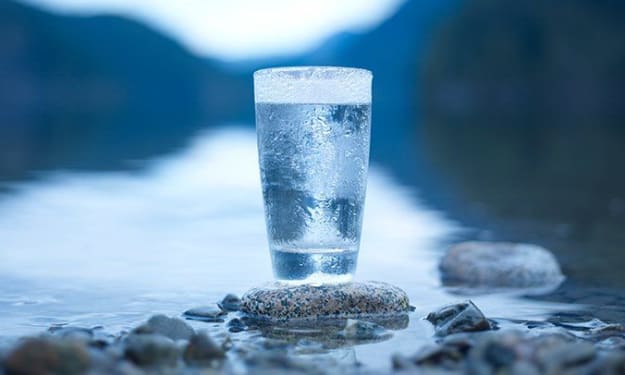
Water is an essential component of our daily lives, vital for maintaining our health and well-being. With the increasing concern about water quality, many people have turned to reverse osmosis (RO) systems as a means to purify their drinking water. However, a common belief has emerged that RO water can lead to vitamin B12 deficiency. In this article, we will delve into this topic and separate fact from fiction.
Understanding Vitamin B12:
Vitamin B12, also known as cobalamin, plays a crucial role in the body's metabolism, nerve function, and the production of red blood cells. It is primarily found in animal-based foods such as meat, fish, eggs, and dairy products. Vegetarians and vegans, who exclude or limit animal products from their diets, are at a higher risk of developing a vitamin B12 deficiency.
How Reverse Osmosis Works:
Reverse osmosis is a water purification method that removes contaminants by passing water through a semipermeable membrane. This process effectively removes impurities, including minerals, heavy metals, and potential contaminants such as bacteria and viruses, resulting in clean and safe drinking water.
RO Water and Vitamin B12:
The concern regarding RO water and vitamin B12 deficiency stems from the fact that RO systems can remove certain minerals and nutrients from the water, including some beneficial ones. However, it is important to note that vitamin B12 is not naturally present in water, and its primary source is food.
Vitamin B12 Deficiency Causes:
Vitamin B12 deficiency is primarily caused by a lack of consumption or inadequate absorption of the vitamin. As mentioned earlier, individuals who follow a vegan or vegetarian diet are at a higher risk due to limited intake from animal products. Additionally, certain medical conditions and medications can interfere with the absorption of vitamin B12 in the body.
RO Water and Nutrient Loss:
While RO water can remove some minerals from the water, the extent of nutrient loss is minimal. The main minerals present in water, such as calcium, magnesium, and potassium, are not significant sources of vitamin B12. Therefore, drinking RO water alone is unlikely to cause vitamin B12 deficiency.
Maintaining Adequate Vitamin B12 Levels:
To ensure optimal vitamin B12 levels, individuals who follow a vegan or vegetarian diet should consider alternative sources of the vitamin. This may include fortified foods such as breakfast cereals, plant-based milk, and nutritional yeast. Additionally, supplements are widely available and can be taken after consulting with a healthcare professional.
It is essential to note that even individuals who consume animal-based products may still face vitamin B12 deficiency due to factors such as poor absorption or certain medical conditions. Regular health check-ups and discussions with healthcare professionals can help identify and address any underlying deficiencies.
Conclusion:
The belief that RO water causes vitamin B12 deficiency is not based on scientific evidence. Vitamin B12 is primarily obtained from food sources, especially animal-based products, and not water. While countertop RO systems may remove some minerals from water, the impact on vitamin B12 levels is negligible.
It is crucial to understand the causes of vitamin B12 deficiency and take appropriate measures to maintain optimal levels. If you have concerns about your vitamin B12 intake, consult with a healthcare professional who can guide you on suitable dietary choices and potential supplementation.
Ultimately, it is essential to prioritize overall nutritional well-being by adopting a comprehensive approach that encompasses a diverse diet, regular health evaluations, and professional guidance.
Remember, a balanced and varied diet, along with regular health check-ups, is key to ensuring overall nutritional well-being. That's all.






Comments
There are no comments for this story
Be the first to respond and start the conversation.